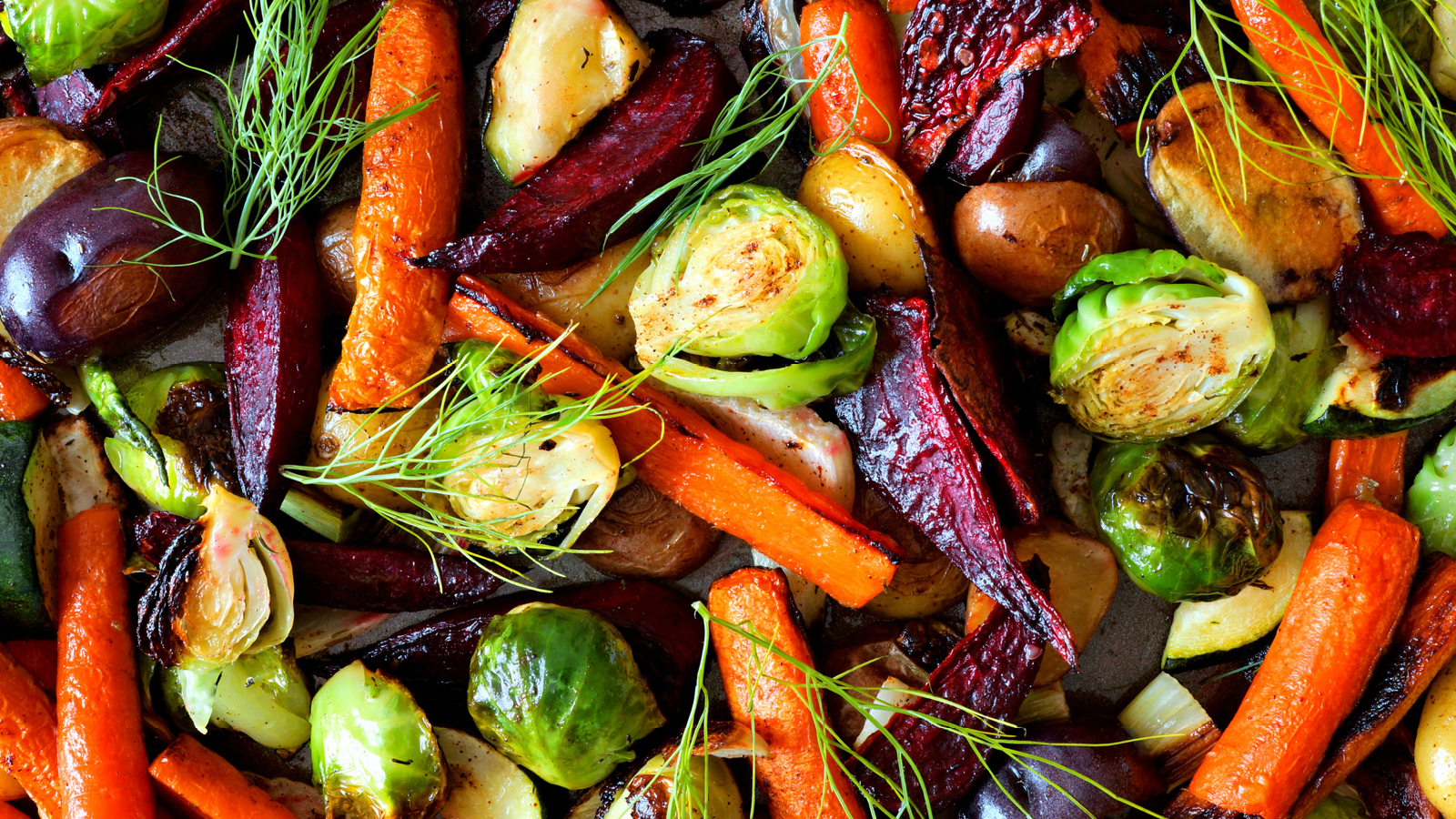
If you’re the kind of person who loves a healthy summer salad, but whose tastes (and maybe exercise routine) start to waiver during winter, you’re definitely not alone.
Like cosying up under a blanket to keep warm, feeling the urge to eat stodgier, unhealthier food is a perfectly natural reaction at this time of year. However, that needn’t mean that we start piling on the pounds.
Those winter cravings
Winter changes a lot of things, not just the weather. Our bodies can start to crave foods that will make us feel warmer – a hangover from the days when we humans putting on a layer of fat to protect ourselves from the cold was a matter of basic survival.
The result? Our food preferences, metabolism and energy levels can change dramatically, and things we’d never dream of gorging on in the summer suddenly become a much more attractive proposition.
But the truth is that winter eating doesn’t need to be unhealthy. It’s simply a case of eating smarter – beating those cravings by consuming foods that take longer to digest, so as to give a more sustained and balanced energy release in the cold.
With this in mind, here are just some of our healthy eating tips to follow this winter:
1) Heat up breakfast time
Let’s start our list with how you should start your day as the weather gets colder - with a decent warm breakfast. Porridge with milk is a great option here, as it provides the perfect slow-release energy to get you through until lunchtime, with dairy to boost your protein and calcium levels and plenty of zinc to help your immune function too. And if oats sound a bit plain, remember you can always spice things up with some cinnamon or dried fruit to make things even healthier.
2) Soup things up
Homemade soup is one of winter’s superfoods, guaranteed to keep your body warm inside and out. Just remember to keep things healthy and steer clear of too much cream. Instead, go for recipes that use chicken or vegetable stock as a base, and make sure you add in plenty of seasonal veges, plus those staples of lentils and beans. Talking of which…
3) Cans mean you can
Whether for a soup or a hearty winter stew, nothing helps to bulk things out at mealtimes like those canned staples you keep in your pantry. So be sure to stock up on essentials like tinned tomatoes, tinned beans, lentils and chickpeas. Not just tasty fillers - and money savers for feeding a crowd - they’re also good for your heart health.
4) Remember your root veges
It’s all very well to say eat with the seasons, but fresh, affordable local produce can be hard to come by during winter months. Thankfully there are always good old root vegetables to fall back on such as potatoes, turnips, parsnips and carrots, always a great boost for vitamins A, C and beta-carotene. Plus of course there’s the perennial Kiwi favourite of beetroot – not just a garnish for burgers, but a handy addition to roast dinners!
5) Keep up your greens
If you want to keep your immune system topped up to beat the flu and other illnesses, broccoli and cauliflower are your go-tos during the winter months. Both of these cruciferous veges pack a real punch of Vitamin C to help fight off the nasties. And if cost is an issue, you can always opt for frozen bags of them which can be just as nutritious. Oh, and one other word which you may or may not appreciate here – sprouts.
6) Add a little more spice
You might not think it, but spices can be a great way to keep your body warm in the cold. Ginger, cumin, pepper, sesame, cinnamon… adding any of these to your favourite dish or stew not only ups the taste factor but also helps to regulate your internal temperature. Or why not go the whole hog and fire up your favourite curry in the evening. That should warm your cockles no end.
7) Boost your Vitamin D
Most of us get around 80% of our Vitamin D needs from sunlight.1 So naturally it stands to reason that we might need an alternative top-up during those shorter winter months. The good news is that cheese, eggs and fish (especially salmon) are a great source of Vitamin D – as are shitake mushrooms if you can stretch to them. Keep your levels topped up, and it can also help to reduce your risk of winter anxiety and depression.
8) Healthy snacks
Lastly, if you still feel the need to snack between meals, try to keep things healthier there too. Fresh fruit is a given, but different types of nuts can also help to curb those hunger pangs without adding too much to your waistline. Think almonds, cashews and walnuts especially.
Remember, it’s perfectly natural to feel hungrier during winter. But with some sensible choices and a bit of forward thinking, there’s no reason you can’t eat just as healthily as you do any other time of year. Think little and often - and beat those cravings to keep your body fit and warm!
Reference:
Other reference:
https://www.naturesbest.co.uk/our-blog/how-to-eat-well-in-winter/
https://www.heartfoundation.org.nz/about-us/news/blogs/healthy-eating-winter
https://www.marylandpainandwellnesscenter.com/blog/6-must-eat-healthy-foods-during-winter
https://health.clevelandclinic.org/5-foods-for-winter-weather/
https://www.healthshots.com/healthy-eating/nutrition/winter-9-foods-to-keep-your-body-warm-and-cosy/
